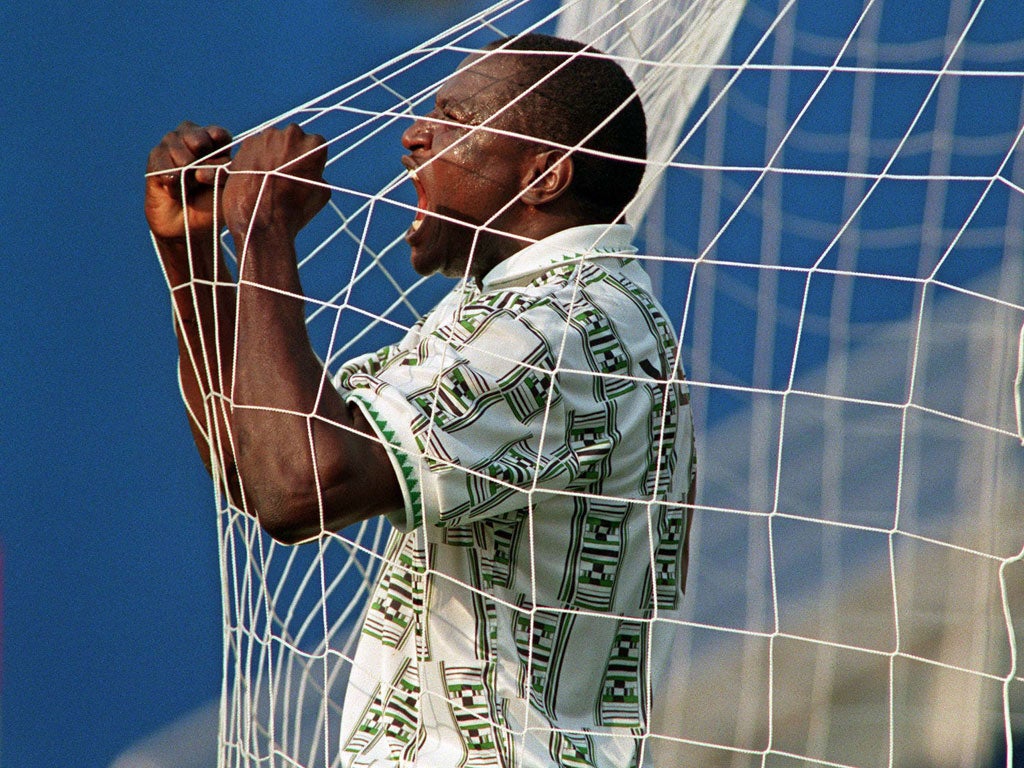
Your support helps us to tell the story
From reproductive rights to climate change to Big Tech, The Independent is on the ground when the story is developing. Whether it's investigating the financials of Elon Musk's pro-Trump PAC or producing our latest documentary, 'The A Word', which shines a light on the American women fighting for reproductive rights, we know how important it is to parse out the facts from the messaging.
At such a critical moment in US history, we need reporters on the ground. Your donation allows us to keep sending journalists to speak to both sides of the story.
The Independent is trusted by Americans across the entire political spectrum. And unlike many other quality news outlets, we choose not to lock Americans out of our reporting and analysis with paywalls. We believe quality journalism should be available to everyone, paid for by those who can afford it.
Your support makes all the difference.The footballer Rashidi Yekini, who died on 4 May at the age of 48, was Nigeria's all-time leading goalscorer, who registered his country's first goal in a World Cup finals tournament.
Yekini scored the historic strike against Bulgaria at the Cotton Bowl stadium in Dallas during the 1994 tournament, and celebrated by running into the goal and clutching the net in what became a famous image in Nigeria and one of the World Cup's best-known goal celebrations. In all, the 6ft 3in striker scored 37 goals in 58 appearance for the Super Eagles.
Nigeria went on to beat Bulgaria3-0, and thanks to another group victory, against Greece, they reached the knock-out stages, where they went within two minutes of beating the eventual runners-up, Italy, who prevailed 2-1 after extra time. Yekini was also twice leading scorer at the African Cup of Nations, scoring four goals in 1992 when Nigeria finished third, and five two years later when the Super Eagles beat Zambia in the final.
Born in northern Nigeria in 1963, he first played abroad for the Portuguese side Vitoria Setubal, for whom he scored 90 goals in just over 100 games. His later clubs in a nomadic career included Olympiakos in Greece and Sporting Gijon in Spain. He retired in 2003, and made a brief comeback two years later. While bustling and aggressive on the pitch, he was the opposite away from the game, and was thought to have suffered from depression in retirement. The cause of death was unclear.
Join our commenting forum
Join thought-provoking conversations, follow other Independent readers and see their replies
Comments